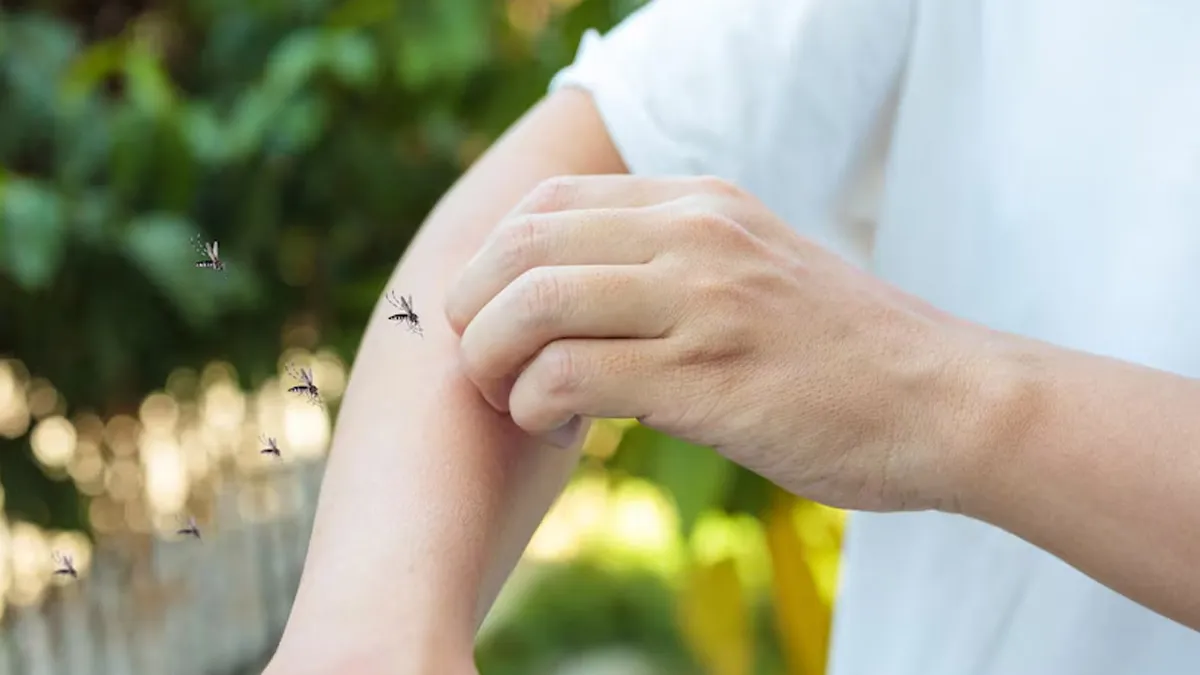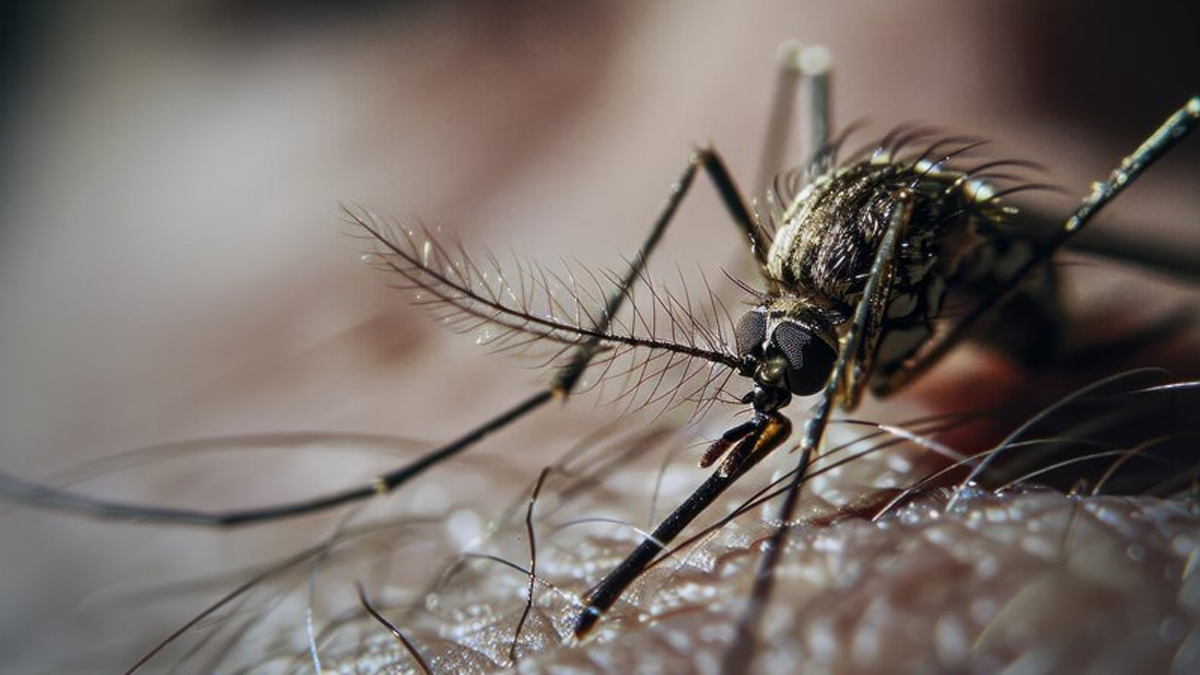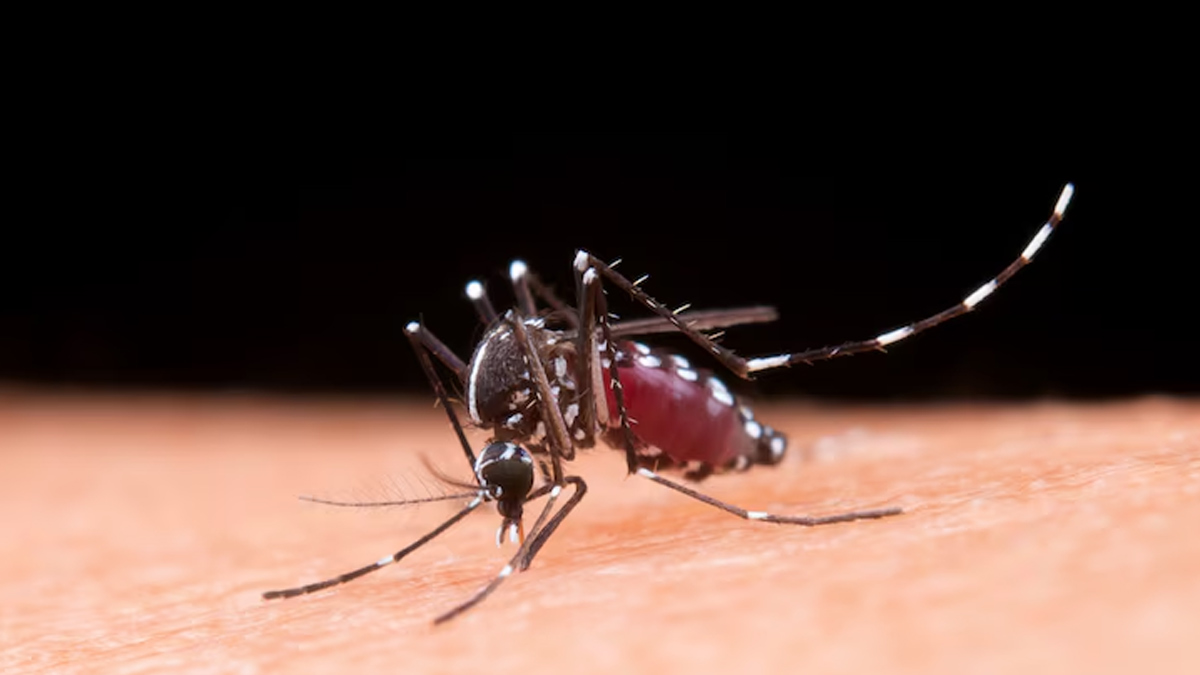
Whenever the season changes, the buzzing of mosquitoes can be heard everywhere, and for some, it feels like they're the target of every mosquito in the neighbourhood. Have you ever wondered why some people seem to be bitten more often than others? Experts suggest that there may be a connection between your body’s chemistry and your susceptibility to bug bites, and it all has to do with the concept of ‘sweet blood.’
Table of Content:-
We spoke to our expert, Dr Shrey Kumar Srivastav, Senior Consultant and Physician, Sharda Hospital - Noida, to explain the connection between sweet blood and increased bug bites. Here is what he shared with us.
What Is ‘Sweet Blood’?
“The term ‘sweet blood’ is not a medical term, but it has been commonly used to describe people whose blood seems to attract bugs, particularly mosquitoes. The phrase refers to the body chemistry and genetic factors that can make certain individuals more appealing to insects,” Dr Srivastav explained.

Factors That Make Blood ‘Sweeter’ To Bugs
While the exact mechanism isn’t fully understood, several factors play a role in making blood ‘sweeter’ to bugs. These may include:
1. Blood Type and Mosquito Attraction
Your blood type may be one of the most influential factors when it comes to bug bites. Studies have shown that mosquitoes prefer people with type O blood. In fact, individuals with type O blood are more likely to attract mosquitoes than those with types A, B, or AB. “This is because mosquitoes are drawn to certain chemicals found in the sweat and skin of those with type O blood,” Dr Srivastav highlighted.
On the flip side, people with type A blood seem to have a slightly lower attraction rate for mosquitoes. The reason for this could be tied to the fact that people with type O blood secrete more of the chemicals mosquitoes love, while type A blood does not produce as many of these attractants.
2. Carbon Dioxide and Its Role in Bug Attraction
Insects, particularly mosquitoes, are highly sensitive to carbon dioxide (CO2) emissions. People who exhale more CO2, like those who are obese or who engage in physical activity, may attract more bugs. This is because CO2 is a primary indicator of a potential food source for mosquitoes (the human body). Obese as well as pregnant women (who produce more CO2), are also more likely to get bitten.

Also Read: Camphor For Mosquito Prevention: How To Use It Safely
3. Body Heat and Metabolic Rate
Your body temperature can also play a role in attracting insects. People who naturally have a higher body temperature or who have a faster metabolic rate may exhale more heat, which is another indicator that bugs look for. Mosquitoes are known to gravitate toward warmer areas of the body. Those with higher body temperatures—whether due to physical exertion, a naturally warmer body, or metabolic differences—may find themselves getting bitten more frequently.
4. Skin Bacteria and Attraction
The composition of the bacteria on your skin may also affect how attractive you are to bugs. Studies have shown that people with a greater diversity of bacteria on their skin tend to attract more mosquitoes. Certain bacteria produce chemicals that are highly attractive to insects. This factor could explain why some individuals with seemingly ‘sweet blood’ get more bug bites, as the bacteria on their skin play a crucial role in the attraction.
5. The Role of Genetics
Genetics plays a significant role in how much carbon dioxide you exhale, how much heat your body generates, and the chemicals you secrete through your skin. A person’s genetic makeup determines the type of scent they give off, the composition of their skin bacteria, and even the composition of their blood—factors that all contribute to bug attraction. If your parents tend to attract more insects, chances are you may share similar traits.
How To Protect Yourself
While you can’t change your blood type or genetic makeup, there are ways to reduce the likelihood of getting bitten:
- Apply insect repellent which repels mosquitoes.
- Mosquitoes are drawn to dark colours, so opt for light-coloured clothing to avoid attracting them.
- Since mosquitoes are attracted to warmth, try to stay cool and avoid excessive sweating when you’re outside.
- Wear long sleeves and pants when you’re in areas with high mosquito populations.
- Mosquitoes breed in standing water, so eliminate sources of water around your home.
Bottomline
While the idea of 'sweet blood may seem like folklore, there is indeed a scientific basis for why some people seem to attract more bugs. Factors like blood type, body chemistry, and even genetics can all contribute to how many bites you receive during a summer evening outdoors. While we can’t control all these factors, understanding them can help you take steps to protect yourself and minimise the annoying (and sometimes dangerous) effects of insect bites.
Also watch this video
How we keep this article up to date:
We work with experts and keep a close eye on the latest in health and wellness. Whenever there is a new research or helpful information, we update our articles with accurate and useful advice.
Current Version